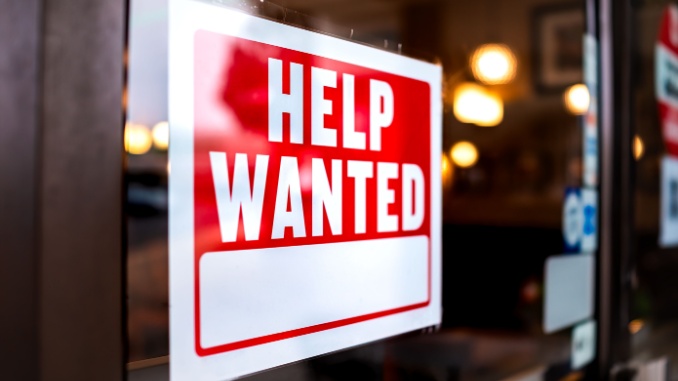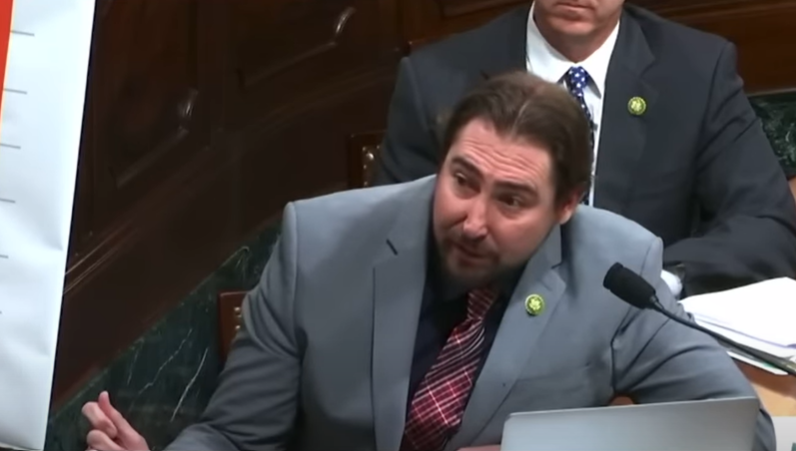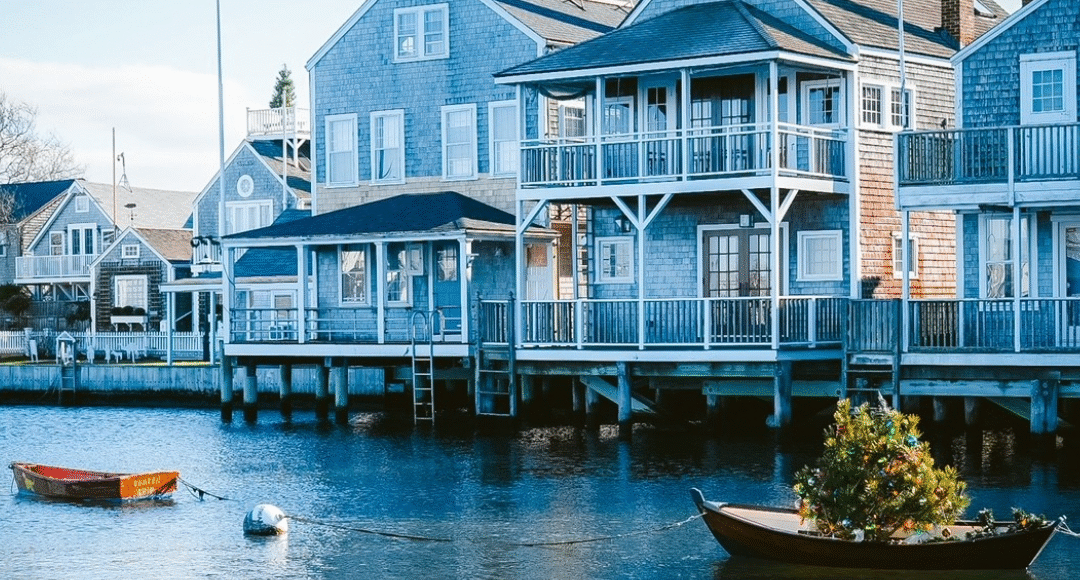
by Matthew Holloway | Aug 26, 2025 | News
By Matthew Holloway |
Joseph Sanberg, co-founder of Aspiration Partners and a prominent California Democrat who has donated to Gov. Gavin Newsom, pleaded guilty Thursday to two counts of wire fraud. Sanberg, who launched the company with former Arizona Democratic Chairman and CD1 Congressional candidate Andrei Cherny in 2013, faces a maximum penalty of 20 years in prison per count for “defrauding multiple investors and lenders” in a carbon credit purchasing scheme.
According to the Department of Justice, Sanberg, “devised a scheme to use his role as a co-founder and board member of Aspiration as well as his shares of company stock to defraud various lenders and investors.”
All told, Sanberg pleaded guilty to attempting to bilk investors of as much as $2 billion, the company’s proposed valuation. The FBI and the U.S. Postal Inspection Service conducted the investigation.
From 2020-21, Sanberg and fellow board member Ibrahim Al Husseini “fraudulently obtained $145 million in loans from two lenders by pledging shares of Sanberg’s Aspiration stock.” The two subsequently falsified Al Husseini’s bank and brokerage statements to inflate his assets by tens of millions of dollars for the purpose of securing loans.
Cherny left the company in mid-October 2022, according to Forbes, following “a rift” that developed between him and Sanberg and a failed attempt to take the company public. At the time of his departure as CEO, the fraudulent activity had been ongoing for approximately two years.
The SEC complaint revealed a text message from Sanberg to Cherny in 2020 in which he said, “If you don’t get me the money tomorrow we are all f…ed. Get me the money. Your turn to figure it out like I have for so long. Wire it to the [Sanberg-entity] account. If you don’t then [the lender] will foreclose. This will give you a good taste of what I have to experience every day. I hate you and I hate this company and I don’t want to work anymore with you [ ]. You are so oblivious to what you’ve forced me to have to do.”
“This is a case about greed and abuse of trust,” said Assistant Director Jose A. Perez of the FBI Criminal Investigative Division. “Today’s guilty plea is a direct result of the commitment by the FBI and our law enforcement partners to hold those accountable who set out to defraud victims and undermine our financial system. The FBI will continue to work with our partners to ensure this kind of malicious behavior is investigated and stopped.”
When the investigation was launched by the Justice Department and the Commodity Futures Trading Commission following a 2021 ProPublica investigation, Cherny, deep in his failed campaign to unseat Rep. David Schweikert, defended his work at Aspiration. Cherny told ProPublica that only 12 million of the 35 million “cumulative total of to-be planted trees” had been planted at that time, noting the turnaround on a new planting was about 18 months.
“I have spent more than 25 years working to combat the climate crisis and am proud of the work I did to promote cutting-edge solutions at Aspiration,” Cherny said. “The carbon removal credit industry is an emerging industry and deserves to be regulated and scrutinized to ensure it is as effective as possible.”
He added, “I have no knowledge whatsoever of any wrongdoing at Aspiration and will fully cooperate with this inquiry.”
According to the SEC complaint, “To make it appear as though Aspiration’s business was rapidly growing, Sanberg recruited friends, associates, small businesses, and religious organizations and presented them to Aspiration as bona fide customers who were fully committed to paying large sums of money for the tree-planting services.”
The complaint continued, “Through his fraud, Sanberg raised more than $300 million from investors who falsely believed Aspiration had a thriving environmental sustainability services business.”
“The defendant didn’t just bend the truth, he built a business on a lie to boost the company’s value and line his own pockets,” said Inspector in Charge Eric Shen of the United States Postal Inspection Service (USPIS) Criminal Investigations Group. “The Postal Inspection Service will go after this kind of calculated deception. No matter who you are, you will be brought to justice.”
Matthew Holloway is a senior reporter for AZ Free News. Follow him on X for his latest stories, or email tips to Matthew@azfreenews.com.

by Jonathan Eberle | Aug 26, 2025 | Economy, News
By Jonathan Eberle |
Arizona’s labor market continued to struggle in July, losing nearly 5,000 jobs and marking the state’s third consecutive month of employment decline, according to the latest data from the Bureau of Labor Statistics.
The state shed 4,900 nonfarm jobs on a seasonally adjusted basis last month, a 0.15% decrease that ranked Arizona 46th among all states in monthly job growth. Since April, the state has lost a total of 23,400 jobs—the steepest decline in both raw numbers and percentage change of any state in the nation.
Nationally, employment also slipped, falling 0.12% in July. Twenty-one states reported job losses.
On a year-over-year basis, Arizona gained 29,600 jobs, a 0.9% increase that puts the state roughly in line with the national average of 1.0%. But the pace of growth has slowed sharply compared to recent years. So far in 2025, Arizona has added just 5,200 jobs—an average of 743 per month. Between 2022 and 2024, monthly job growth averaged more than 5,300.
Economists say the state remains well below its pre-pandemic trajectory. Arizona now has about 254,400 fewer workers than it would have had if its 2017–2019 growth trend had continued. At the current pace, the gap is unlikely to close.
The state’s mining and logging industry was the strongest performer, adding 1,400 jobs in July and growing nearly 10% over the past year. Analysts credit federal policy shifts and rising demand for U.S.-sourced raw materials like copper and uranium for the sector’s continued momentum.
By contrast, manufacturing continued to contract, losing 1,100 jobs last month and more than 3,000 over the past year—a 1.6% decline. Nationwide, the sector has also struggled, with 29 states reporting year-over-year manufacturing job losses. Leisure and hospitality posted the steepest monthly decline in Arizona, down 0.9% in July.
Arizona’s unemployment rate remained unchanged at 4.1%, holding steady for the fifth straight month. The labor force participation rate also stayed flat at 61.4%. By comparison, the U.S. unemployment rate ticked up to 4.2% in July, while the national participation rate edged down to 62.2%. Both Arizona and the nation remain below pre-pandemic participation levels.
Wages showed modest improvement. Average hourly earnings in Arizona increased by 10 cents in July to $34.79, a 0.29% rise that ranked 18th among all states. Over the past 12 months, wages in the state climbed 4.9%, outpacing the national average of 3.9%. Adjusted for inflation, real wages in Arizona are up 4% compared to just 1.1% nationwide.
Still, long-term wage trends tell a different story. Since April 2020, inflation-adjusted pay in Arizona has fallen 4.1%.
The report also underscored concerns about the reliability of monthly employment estimates. June’s figures were revised downward sharply—from a reported loss of 8,400 jobs to a revised loss of 15,200. That revision ranked as the seventh largest adjustment among all states.
Economists caution that declining survey response rates and lingering disruptions from the pandemic have increased volatility in state-level labor data, making short-term trends harder to interpret.
Jonathan Eberle is a reporter for AZ Free News. You can send him news tips using this link.

by Ethan Faverino | Aug 26, 2025 | News
By Ethan Faverino |
Congressman David Schweikert (AZ-01) introduced the Cybercrime Marque and Reprisal Authorization Act of 2025 (H.R.4988).
This legislative measure is to counter the rising tide of foreign cyberattacks targeting American citizens and infrastructure.
The bill, referred to the Committee of Foreign Affairs, revives Congress’s constitutional authority under Article 1, Section 8, Clause 11 to issue letters of marque and reprisal, empowering the President to commission private cyber operators to disrupt foreign criminal enterprises engaged in cybercrimes. The legislation comes in response to alarming data from the FBI’s 2024 Internet Crime Report, which recorded 859,532 complaints of suspected internet crime, with reported losses exceeding $16 billion— a 33% increase from 2023.
The top cybercrimes included phishing/spoofing, extortion, and personal data breaches, with investment fraud involving cryptocurrency leading to over $6.5 billion in losses.
Americans over 60 were hit hardest, suffering nearly $5 billion in damages.
California, Texas, and Florida reported the highest number of complaints, with many attacks traced to state-linked “scam-farms” in nations like Myanmar and North Korea. Continuing into 2025, Arizonans 60-69 have already lost $12.5 million in the first quarter alone, due to fraud.
Congressman Schweikert stated, “Criminal syndicates backed by foreign governments are using cyberspace to prey on American seniors, steal intellectual property, and undermine national security. Our current tools are failing to keep pace. This legislation allows us to effectively engage these criminals and bring accountability and restitution to the digital battlefield by leveraging the same constitutional mechanism that once helped secure our nation’s maritime interests.”
H.R. 4988 authorizes the President to issue letters of marque and reprisal to private entities, enabling them to target individuals or foreign government-linked enterprises involved in cybercrimes such as fraud, ransomware, cryptocurrency theft, identity theft, and unauthorized access to computers or sensitive data.
These operations, conducted under strict federal oversight and requiring security bonds to ensure compliance, aim to seize assets and disrupt criminal activities outside U.S. borders.
The bill defines cybercrimes broadly, covering offenses like accessing a computer without authorization (to obtain national security information, to obtain personally identifiable information, to engage in fraud, or to transmit a program, code, or command), trafficking in passwords without authorization, pig butchering scam, ransomware attack, cryptocurrency theft, or identity theft.
Congressman Schweikert added, “Americans deserve protection from digital predators who exploit outdated laws and hide in foreign jurisdictions. This proposal harnesses innovation and constitutional authority to respond to the modern crisis of cybercrime.”
Ethan Faverino is a reporter for AZ Free News. You can send him news tips using this link.

by Matthew Holloway | Aug 25, 2025 | News
By Matthew Holloway |
Following the announcement of her candidacy for the Mesa City Council seat currently held by Julie Spilsbury, who is facing a recall election, Dorean Taylor (DT) was willing to answer a few questions for AZ Free News to provide voters with a background on her and her candidacy. Taylor called out Spilsbury for repeatedly voting “to harm the people of Mesa with woke and ineffective government policies that violate our deeply held community principles.” She also placed blame on Spilsbury for increases in homelessness and utility costs.
Taylor announced her candidacy in July after Councilwoman Spilsbury faced serious challenges to her self-proclaimed status as a Republican for her enthusiastic endorsements of Vice President Kamala Harris in the 2024 Presidential Election as well as endorsements from prominent Arizona Democrats U.S. Rep. Greg Stanton, Arizona Secretary of State Adrian Fontes, and U.S. Sen. Ruben Gallego.
Asked to provide a background on herself, Taylor told us:
“I’m originally from the beautiful sunny state of Florida. My family still resides on the East Coast, and I enjoy flying back to see them and visit any time I can. I moved to AZ to attend the same amazing church I still attend today and complete my bachelor’s degree. While I was in school and working full time, I met the love of my life, a Mesa native! We got married, started life together in Mesa, and are still living here today. I’ve come to know and love my community here and have lived in or near District 2 since 2010. Our first home was at Lindsay and Brown. One of my favorite things about Mesa is the small-town feel you can experience in a large suburb. For example, my neighbors will ride their horses down the street and wave to us while we sit on the front porch, but just down the street is a shopping center and public parks. It’s incredible.”
Taylor then answered some questions regarding her campaign, her motivations, and what differentiates her from her opponent.
AZFN: What inspired you to join the race for City Council?
DT: “Thank you for asking. I spoke on behalf of my household and my neighbors, witnessing others who felt the same way speaking up too, and watching all of us be politely ignored. It’s become clear to me that its long overdue for the great people of Mesa District 2 to have principled, honest, common sense leadership on the City Council — representation that actually cares about implementing policies that will improve the lives of the people who call our city home. I’m running to ensure that we have better roads, a safer community, we work to end the homelessness epidemic, and reduce taxes and fees while making our government smarter and more efficient.”
AZFN: How do you differentiate yourself from Councilwoman Julie Spilsbury?
DT: “Our core principles on what drives us to action are different. Unfortunately, my opponent has repeatedly voted to harm the people of Mesa with woke and ineffective government policies that violate our deeply held community principles. She has not remained non-partisan. My opponent has supported policies that have led to an historic epidemic of homelessness on our streets, wasteful spending on pet projects, an increase in utilities, and a currently proposed more than 40% increase in Mesa water rates — Ms. Spilsbury has broken her commitments to the people who elected her, and she has lost the trust of our community. Over five thousand residents signed to recall her. The people have spoken. I’m running to restore honest, objectively principled, commonsense leadership in District 2. I will honor the code of ethics.”
AZFN: What are your top policy priorities once you take office?
DT: “My priorities are simple and align with the priorities of the people I am running to represent — lower taxes and cost of living, smarter and efficient government, safer neighborhoods, better roads that allow for less congestion and faster commute times, and ending the homelessness epidemic that has plagued our streets these past few years. The people of Mesa are incredible and compassionate. They want a representative government that works for everyone, and when I’m elected, that’s exactly what I’ll aim to deliver. One of my first goals is to send out communication to my district to keep residents informed of what is upcoming and to host townhalls for them. People want honesty and government transparency.”
Matthew Holloway is a senior reporter for AZ Free News. Follow him on X for his latest stories, or email tips to Matthew@azfreenews.com.

by Matthew Holloway | Aug 25, 2025 | News
By Matthew Holloway |
Congressman Eli Crane (R-AZ02) announced Friday that he has signed on to Rep. Abe Hamadeh’s ‘Preserving and Protecting the Integrity of American Elections’ Act, known as H.R. 2499. The bill is designed to codify President Donald Trump’s Executive Order 14248, which enhances U.S. election security by requiring proof of citizenship for voter registration, restricting mail-in ballot deadlines, and prioritizing enforcement against non-citizen voting.
The bill further mandates that states require proof of citizenship in the form of a government-issued ID on voter registration forms, orders the Departments of State, Homeland Security, and Social Security Administration to provide federal database access to states for determining voter eligibility, and requires a single Election Day deadline for vote tabulation. Each measure will carry the threat of withdrawn federal funding in the event of non-compliance.
In a post to X, Crane wrote, “Proud to cosponsor @RepAbeHamadeh‘s bill to codify President Trump’s executive order on election integrity. Arizonans have witnessed poorly-run elections firsthand, and this legislation addresses key vulnerabilities. We must have an efficient and trustworthy process.”
After introducing the bill, Hamadeh said in a statement at the time, “The American people deserve better. They deserve to know that their legally cast ballot is counted and accounted for. I am disappointed, but obviously not surprised that Mayes and Fontes seek to thwart the implementation of commonsense safeguards of democracy.”
He added, “As a trusted advisor once said to me, ‘election integrity never disenfranchised a single soul, but a single act of election fraud disenfranchises us all.’”
In a press release, he added, “In Arizona, we have seen what the mismanagement of voter rolls, failed election infrastructure, and corrupt courts can do to destroy voter confidence and faith in our system overall. We are taking swift action to rebuild citizens’ trust in our elections through comprehensive and meaningful election integrity legislation.”
In a post to X, the Congressman observed, “Many people say we should focus on the future and move on from 2020 and 2022… How could I(?) [K]nowing what I know? Our elections have been hijacked, they’ve been corrupted, and the American people deserve justice. It can never happen again. Election Security IS National Security.”
Matthew Holloway is a senior reporter for AZ Free News. Follow him on X for his latest stories, or email tips to Matthew@azfreenews.com.

by Matthew Holloway | Aug 24, 2025 | News
By Matthew Holloway |
While Arizona is still wrangling with the aftermath of major wildfires in the North, Governor Katie Hobbs headed to Nantucket, Massachusetts, to wine and dine out-of-state Democrat super-donors paying up to $5,500 a plate to meddle in the politics of the Grand Canyon State. The fundraising event was reportedly led by a former Ambassador whose nomination was nearly scuttled by allegations of antisemitism.
MSNBC Contributor Teddy Schleifer shared an invitation to the event in a post to X.
Tyler Bowyer, COO of Turning Point Action, lampooned the move in a post to X, writing, “another Arizona Democrat running an East Coast fundraiser.”
According to the post, the event was organized by a “host committee in formation,” which included prolific Democrat fundraiser Elizabeth Bagley, former Ambassador to Brazil under President Joe Biden and former Ambassador to Portugal under President Bill Clinton.
Bagley’s Senate confirmation was stalled in 2022 in the Senate Foreign Relations Committee on grounds of antisemitism allegations after the Washington Free Beacon found a 1998 interview in which she complained about “the influence of the Jewish lobby because there is major money involved.” She added, “The Democrats always tend to go with the Jewish constituency on Israel and say stupid things, like moving the capital to Jerusalem always comes up.” She claimed support for these Israel-related issues is due to “the Jewish factor, it’s money.”
Both Democrats and Republicans in Congress at the time were highly critical of Bagley for her remarks, to which she responded, “I regret that you would think that it was a problem. I certainly didn’t mean anything by it. It was a poor choice of words, but it was something that the interviewer had asked me, prompted by something about politics.”
Given Hobbs’ recent controversy involving the Jewish community and her veto of the Antisemitism in Education Act, which dealt with educators “promoting antisemitism or forcing students to support antisemitic viewpoints,” it is striking that Hobbs would participate in a fundraiser involving such a figure.
Matthew Holloway is a senior reporter for AZ Free News. Follow him on X for his latest stories, or email tips to Matthew@azfreenews.com.






